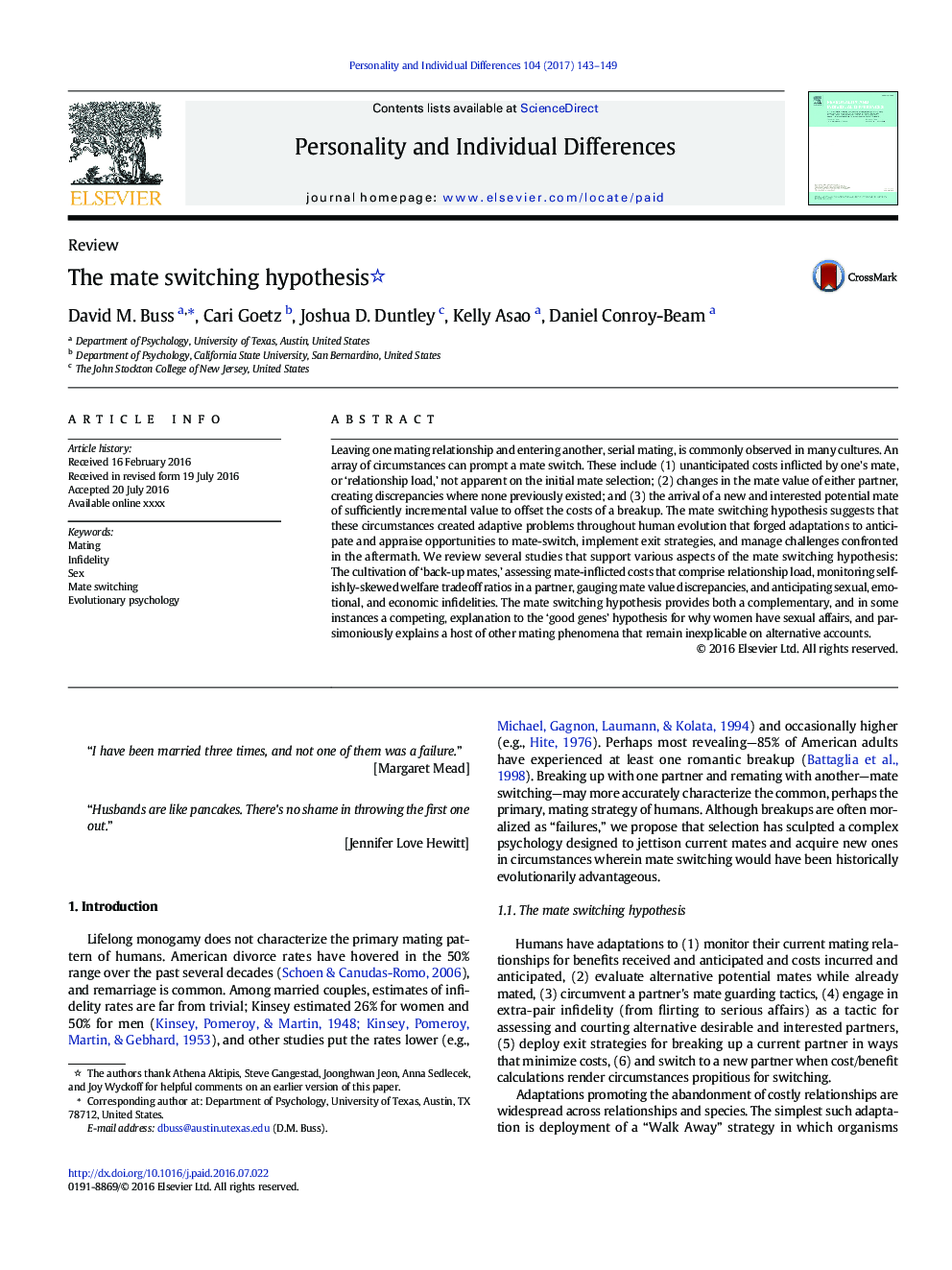| Article ID | Journal | Published Year | Pages | File Type |
|---|---|---|---|---|
| 7249393 | Personality and Individual Differences | 2017 | 7 Pages |
Abstract
Leaving one mating relationship and entering another, serial mating, is commonly observed in many cultures. An array of circumstances can prompt a mate switch. These include (1) unanticipated costs inflicted by one's mate, or 'relationship load,' not apparent on the initial mate selection; (2) changes in the mate value of either partner, creating discrepancies where none previously existed; and (3) the arrival of a new and interested potential mate of sufficiently incremental value to offset the costs of a breakup. The mate switching hypothesis suggests that these circumstances created adaptive problems throughout human evolution that forged adaptations to anticipate and appraise opportunities to mate-switch, implement exit strategies, and manage challenges confronted in the aftermath. We review several studies that support various aspects of the mate switching hypothesis: The cultivation of 'back-up mates,' assessing mate-inflicted costs that comprise relationship load, monitoring selfishly-skewed welfare tradeoff ratios in a partner, gauging mate value discrepancies, and anticipating sexual, emotional, and economic infidelities. The mate switching hypothesis provides both a complementary, and in some instances a competing, explanation to the 'good genes' hypothesis for why women have sexual affairs, and parsimoniously explains a host of other mating phenomena that remain inexplicable on alternative accounts.
Related Topics
Life Sciences
Neuroscience
Behavioral Neuroscience
Authors
David M. Buss, Cari Goetz, Joshua D. Duntley, Kelly Asao, Daniel Conroy-Beam,
